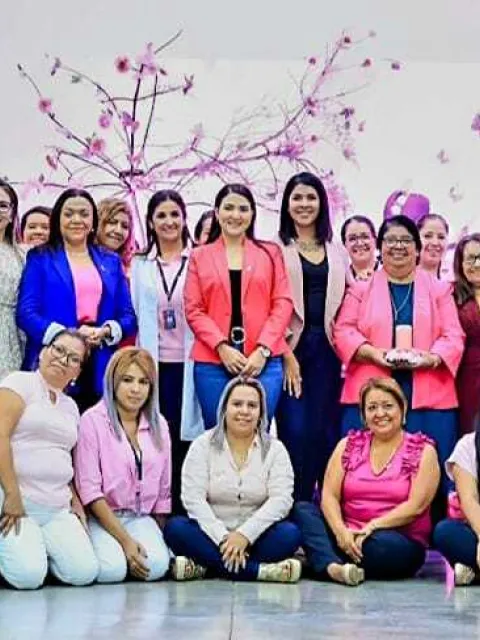This year in October, I will mark my third participation at the World Cancer Congress, organised by the Union for International Cancer Control (UICC). Not that the number itself is particularly remarkable - I am sure there are many, more seasoned, cancer professionals whose engagement with this flagship event for the cancer community goes further back.
I do, however, feel very fortunate to have had the opportunity to access this platform, and the learning and connections that have come with it, over the past few years.
I have come to regard Congresses as pivotal moments in my career; dates that, although differently from the many anniversaries that dot one’s personal life, are nonetheless worth celebrating and looking forward to.
My development as a cancer professional, particularly my interest and skills in the area of community-led peer support groups, is closely linked with my experience and engagement at the World Cancer Congress.
Building capacity through Master Courses
The first Congress I attended, in 2014, took place on my own turf, in Melbourne, Australia. As a young professional, new to oncology at the time, I suddenly had 2,700 professionals descending on to my doorstep, bringing experiences of cancer control from over 100 countries. That may have ended up being too overwhelming an opportunity to truly grasp over the few days of the Congress.
Fortunately, I took advantage of a pilot programme UICC was launching and signed up to a Master Course on peer support.
The blended online and face-to-face format starting a few months prior to Congress exposed me to key learning and gave me access to leading experts in peer support over a protracted period of time. By the time Congress came, I had already built connections with fellow course participants and the networking and knowledge gained helped to focus my career direction and spark my interest to undertake PhD research in the field.

Amanda Pomery and other participants pose for a photo at the Patient Group Pavillion during the 2016 World Cancer Congress.
A platform to share knowledge and learning
In 2016, the World Cancer Congress in Paris provided me with the opportunity to showcase the initial findings of my PhD research, which I had started following the Congress in Melbourne.
Once again, I was able to benefit from another ‘first’ at the Congress; the Patient Group Pavilion where I presented my work relating to the identification and development of cancer support group leaders.
It was a humbling experience to share learning with other presenters, in front of a global audience of patients, group leaders, and advocates. I was able to gain invaluable perspectives on peer support delivery from different countries and resource settings, and the whole experience highlighted for me the importance of developing accessible and adaptable study outputs for others to use. The learning I acquired from the audience, which was there to learn from my experience, was eye-opening.
The student becomes the master
This brings me to the upcoming Congress in Kuala Lumpur in October 2018, where my participation will come full circle. As co-chair of the Patient Group Pavilion, I am working with the UICC team to put together an exciting programme, by and for patient groups. Additionally, I will be leading a Master Course aimed at building the capacity of patient groups and their leaders.
Once again though, I expect the learning I will get from the exposure to so many professionals will outweigh the responsibilities and efforts these formal roles will require of me.
In summary, the Congress has helped me enormously develop professionally by granting me opportunities to connect with patient groups, build capacity for the benefit of the cancer community, and assume leadership roles. The experience drives my passion to do better.
I strongly encourage other young professionals and group leaders to attend and get involved with the World Cancer Congress. It is a wonderful opportunity to learn and build your own skills, along with the potential to positively influence others within your local community and beyond. I look forward to seeing you in Kuala Lumpur.
Register now for the 2018 World Cancer Congress – including Master Courses – by clicking here.

